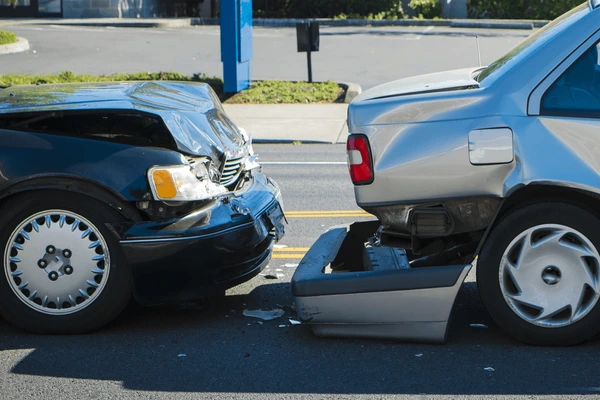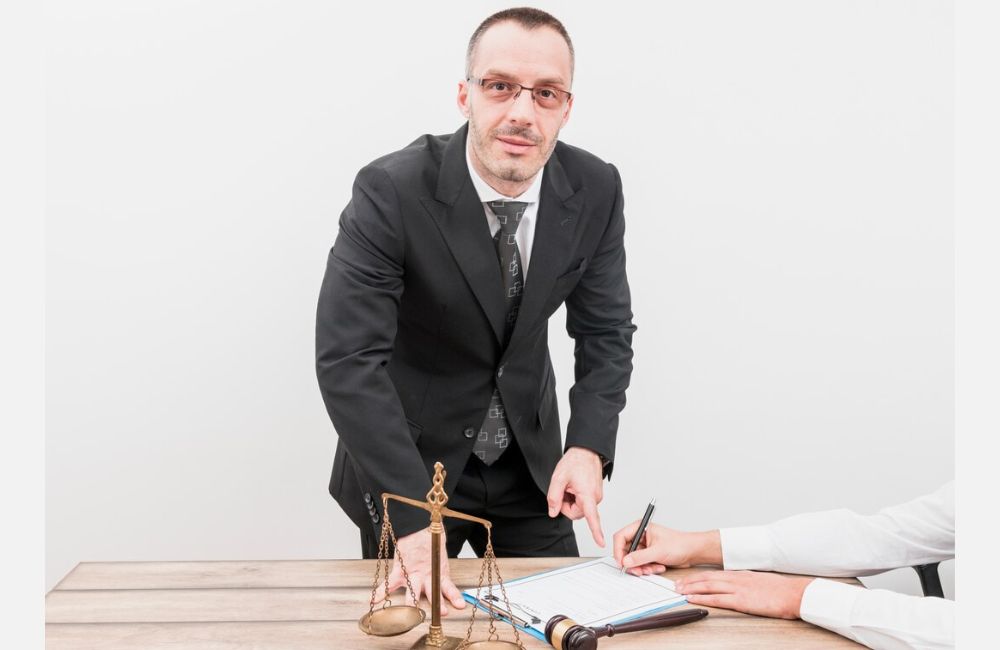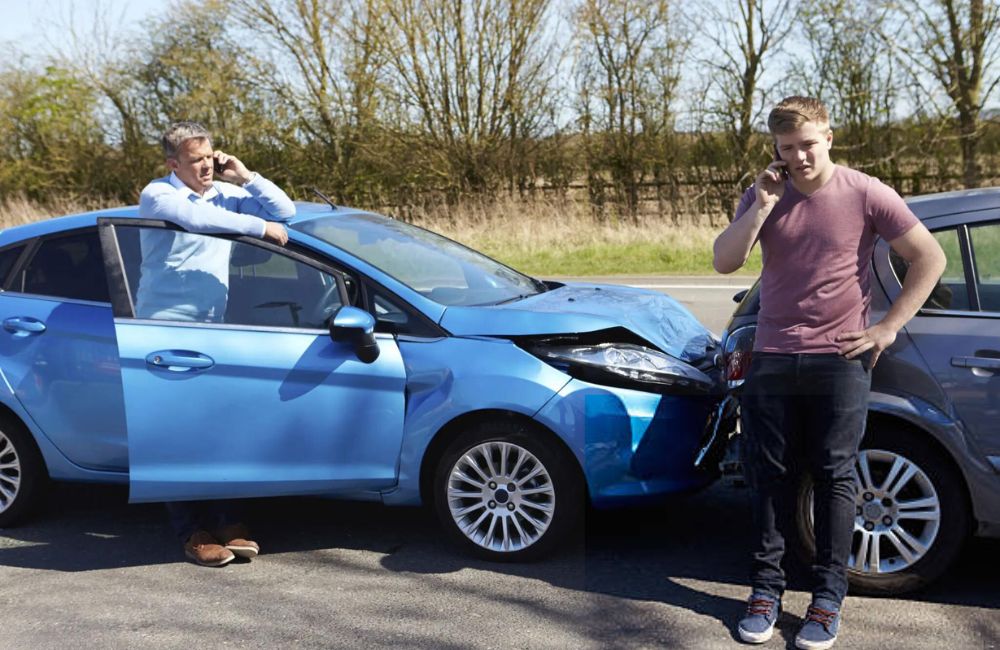Based on California Vehicle Code 21703, tailgating is illegal since it is one of the causes of rear-end collisions. According to the National Safety Council (NSC) around 9,330,000 million vehicle crashes were recorded and 3,890,000 of them were rear-end collisions. If you’ve been rear-ended, you might wonder whether getting a lawyer is necessary. Navigating the aftermath of a car accident can be overwhelming, and the decision to seek legal counsel is a significant one.


Whether you need a lawyer after a collision depends on the situation. For minor accidents with no injuries, you might handle things with insurance alone. But if there are injuries, major damage, or disputes about fault, a lawyer can be invaluable. They’ll help you know your rights, assess your claim’s value, and guide you through getting compensation. They’ll negotiate with insurers, gather evidence, and represent you in court if needed. Consulting a lawyer after a rear-end collision ensures your interests are looked after.
- Rear-End Collision Accidents in California
- Understanding Vehicle Accidents
- Legal Considerations After a Rear-End Collision
- Benefits of Hiring a Lawyer
- The Legal Process
- Preparing for a Legal Consultation
- Cost of Legal Representation
- Frequently Asked Questions
- Get the Compensation You Deserve After a Rear-End Collision with The Personal Injury Center
Rear-End Collision Accidents in California
On February 18th, 3 people were killed due to a rear-end collision on the Interstate Highway. A Toyota Tacoma struck a Mini Cooper led to two people in the Mini Cooper being declared dead at the site while the third one was rushed to the hospital, but later, one died as well.
On January 22nd, a car lost control and ended up colliding with another car in the southbound lanes of the freeway near Highway 120. The driver of the said car was rushed to the hospital but due to her injuries, didn’t survive the crash.
Last March 6th a rear-end collision took place spanning parts of Sacramento and Placer counties. It was suspected that the second driver, who rear-ended the other car, was driving under the influence (DUI) and was put behind bars. While the other was rushed to the hospital due to the major injuries it sustained.
These are just some of the rear-end collisions that took place in the first few months of 2024. Knowing what to do after this type of accident is important since this will help you have a smoother navigation on getting a compensation.
Understanding Vehicle Accidents


When you are involved in a vehicle accident, it’s crucial to understand the dynamics of the accident and the factors that could affect your legal rights and responsibilities.
Factors to Consider
- Liability: Determining who is at fault is a key component in vehicle accidents. In most rear-end collisions, the driver who has collided with the rear of another vehicle is typically found responsible. However, circumstances vary, and liability may not always be clear-cut.
- Injuries: It’s essential to assess any injuries sustained, as they can significantly influence the need for legal representation. Injuries can range from minor to severe, and recognizing the extent of your injuries is important for any potential compensation claims.
- Insurance: Understanding your insurance coverage and that of the other driver is important. Insurance companies play a vital role in compensation for damages and injuries.
- Damage Assessment: Evaluating the extent of damage to your vehicle is necessary, whether it’s minor or leads to total loss.
- Legal Deadlines: Be aware of the statute of limitations in your area, as this determines the timeframe you have to take legal action.
- Evidence: Collecting and preserving evidence, such as photos of the accident scene, can support your claim if you decide to pursue legal action.
Assessing these factors can guide your decision on whether to seek legal counsel following a rear-end collision.
Legal Considerations After a Rear-End Collision
After being involved in a rear-end collision, understanding the legal steps is crucial for safeguarding your rights. Your ability to seek compensation often relies on the clarity of fault and timeliness of action.
Determining Fault
In a rear-end collision, fault typically lies with the driver who strikes the car in front of them. This is often due to following too closely or not paying adequate attention. The presumption of fault rests on this driver as they are expected to maintain a safe distance to stop without causing a crash. However, there are exceptional circumstances where the leading driver might be at fault, such as abrupt and unnecessary braking or a failure to maintain working tail lights.
Statute of Limitations
You have a limited window of time, known as the statute of limitations, to file a lawsuit for damages stemming from a rear-end collision. This period varies by state but generally ranges from one to four years from the date of the accident. California typically allows you to sue two years from the incident if you’re vying for a personal injury claim while for property damages, they allow three years from when the damages were incurred. Missing this deadline can forever bar you from seeking compensation for your injuries and damages, making it essential to act promptly to preserve your legal options.
Benefits of Hiring a Lawyer
When considering whether to hire a lawyer after a rear-end collision, being informed on how they can assist is critical. Lawyers bring specialized legal expertise and negotiation skills that can be pivotal in dealing with insurance companies and securing fair compensation.
Legal Expertise
After a rear-end collision, your attorney will navigate the complex legal system on your behalf. They are equipped to manage intricate legal procedures, from interpreting laws to filing claims within the appropriate deadlines. Their knowledge ensures that your case adheres to all legal standards, maximizing the possibility of a favorable outcome.
Negotiating with Insurance Companies


Insurance adjusters aim to minimize the company’s payouts. A lawyer acts as your advocate, negotiating with the insurance companies to resist low settlement offers. With their expertise, they level the playing field and work towards obtaining compensation that reflects the true extent of your damages and losses.
The Legal Process
Understanding the legal process is crucial to ensure you’re adequately represented and compensated when involved in a rear-end collision. Navigating the complexities of insurance claims and litigation requires a precise approach, and in many instances, the assistance of a legal professional can prove beneficial.
Filing a Claim
To initiate the legal process for a rear-end collision, you must file a claim with the at-fault party’s insurance company. This step involves providing all necessary documentation of the accident, including police reports, photographs of the scene, and any medical reports if injuries were sustained. It’s imperative to act promptly, as insurance companies often have strict deadlines for filing claims. Consulting an attorney after a rear-end accident can help you sort through the required paperwork and ensure that your claim is filed correctly.
Settlements and Litigation
The outcome of a claim can lead to either a settlement or litigation. A settlement is an agreement reached between you and the insurance company to compensate for damages and injuries without going to court. It’s not uncommon for insurance companies to offer settlements quickly, but it’s crucial to evaluate whether the offer fully covers your losses. Alternatively, if a settlement cannot be reached, the case may proceed to litigation, where a court will determine fault and award damages. The evidence presented during the litigation, such as witness statements and expert testimony, will be key in supporting your case. Understanding the difference between settlements and litigation is important when deciding how to proceed after a rear-end collision.
Preparing for a Legal Consultation
Before meeting with an attorney about your rear-end collision, gathering all pertinent documents and preparing a list of detailed questions is crucial. This ensures that you maximize the value of the consultation and lay a solid foundation for your case.
Documentation to Collect
- Police Report: Obtain a copy of the official report which outlines the details of the accident.
- Medical Records: Collect all records related to injuries you sustained, including treatments and expenses.
- Photographic Evidence: Any photos of the accident scene, vehicle damage, and injuries should be compiled.
- Witness Statements: If there were witnesses, bring their written statements or contact information.
- Insurance Correspondence: Keep a record of all communications with your insurance company or the at-fault party’s insurer.
Questions to Ask
- Liability: What are the chances of proving the other driver’s liability in this rear-end collision?
- Damages: Considering my medical records and other documentation, what level of compensation can I realistically expect?
- Process: What are the steps involved in pursuing a claim, and how long might the entire process take?
- Legal Fees: How do you structure your fees, and will I need to pay anything upfront?
Effective preparation can significantly impact the outcomes of your initial legal consultation and your case.
Cost of Legal Representation


When seeking legal assistance after a rear-end collision, you need to understand the potential financial obligations involved. The expenses typically revolve around two types of fees: contingency and consultation.
Contingency Fees
In most personal injury cases, attorneys work on a contingency fee basis. This means they only get paid if they win your case. The standard contingency fee is 33-40% of your final settlement amount. You won’t pay any upfront fees; the lawyer’s payment comes only after the successful conclusion of your case.
Consultation Fees
Additionally, lawyers may offer a free initial consultation, or they may charge for this service. During this meeting, they’ll evaluate the merits of your case and advise on the best course of action. Always confirm with your lawyer whether they require a fee for the initial consultation to avoid unexpected costs.
Frequently Asked Questions
In the aftermath of a rear-end car accident, you might feel overwhelmed with questions and decisions. This section aims to address some of the most common inquiries and guide you through the next steps.
What steps should I take immediately after being rear-ended in a car accident?
If you’re involved in a rear-end collision, your immediate priorities are to ensure your safety and gather evidence. Check for injuries and call 911. Document the scene with photos and exchange information with the other driver. It’s also recommended to seek medical attention, as some injuries may not be immediately apparent.
How do I determine if my situation warrants hiring an attorney following a rear-end collision?
Evaluate the extent of damage to your vehicle, your injuries, and any potential long-term impacts. If you’re facing expensive medical bills, lost wages, or a collision involving complex legal issues, consulting with a car accident attorney could be beneficial.
What factors influence the settlement amount for a rear-end auto accident?
Several factors impact settlement amounts, including the severity and permanence of your injuries, the extent of vehicle damage, lost income, and whether you’ve sustained pain or suffering. Expert legal advice can help ascertain the value of your claim.
Could having a lawyer increase the compensation I receive after being rear-ended?
A lawyer skilled in rear-end accident cases can negotiate with insurance companies, build a strong case, and ensure you receive fair compensation for your losses. They can handle the legal complexities, allowing you to concentrate on your recovery.
What are common pitfalls to avoid when dealing with insurance companies after a rear-end accident?
Be cautious when speaking with insurance adjusters, as they may attempt to settle quickly for less than you deserve. Avoid admitting fault or giving recorded statements without legal counsel. Ensure you understand the full extent of your damages before agreeing to any settlement.
How long do I have after a rear-end collision to decide if I should hire a lawyer?
Legal time limits, known as statutes of limitations, vary by state but usually range from one to three years from the date of the accident. It’s best to consult with a lawyer soon after the collision to safeguard your rights and ensure you don’t forfeit your ability to seek compensation.
Get the Compensation You Deserve After a Rear-End Collision with The Personal Injury Center
Are you a victim of a rear-end collision? Don’t navigate the legal complexities alone. Connect with The Personal Injury Center today to ensure you get the compensation you need. Our experienced team of personal injury lawyers specializes in cases involving rear-end collisions and can guide you through every step of the process. From understanding your rights to negotiating with insurance companies and representing you in court if necessary, our team is dedicated to helping you understand your case and getting you the compensation you deserve. Don’t delay, contact The Personal Injury Center now to schedule a consultation and take the first step towards securing the justice and compensation you deserve.



